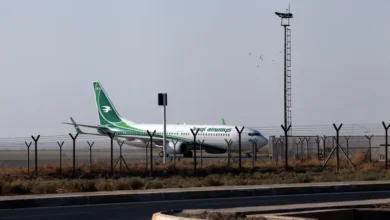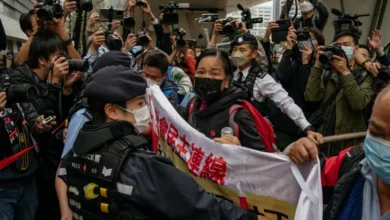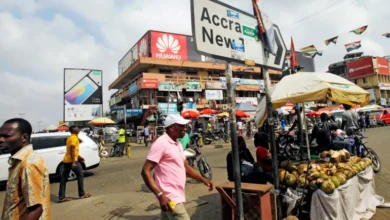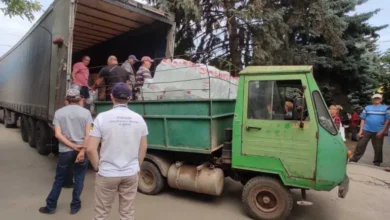Amazon faces Indian court scrutiny for labour conditions at warehouse

Amazon is facing prosecution in an Indian court for labour law violations at a major warehouse near the country’s national capital of Delhi.
Documents reviewed by Al Jazeera through India’s Right to Information Act and court records showed that a labour inspection earlier this year alleged inadequate safety equipment, and failure to comply with provisions of labour laws at the Amazon warehouse.That inspection was launched after reports emerged of an incident in May, where Amazon workers at the facility, located near Manesar in the state of Haryana, were asked to take verbal pledges not to take breaks, including for drinking water or using the toilet, until they met their targets for the day. Amazon calls its warehouses “fulfilment centres”.
That inspection was launched after reports emerged of an incident in May, where Amazon workers at the facility, located near Manesar in the state of Haryana, were asked to take verbal pledges not to take breaks, including for drinking water or using the toilet, until they met their targets for the day. Amazon calls its warehouses “fulfilment centres”.
An internal investigation by the company confirmed that a manager requested such a pledge as part of a “motivational exercise”. Amazon called the incident “unfortunate and isolated” in a letter to India’s Ministry of Labour and Employment in June, stating that disciplinary action had been taken against the manager. Amazon has not specified what action was taken against the executive.
That same month, the local Haryana government conducted a “detailed investigation” through labour inspections at the Amazon warehouse.
‘Labour law violations’
The labour inspection report, reviewed by Al Jazeera through the Right to Information Act, concluded that “labour laws are not being followed by the organisation”.
Amazon failed to provide workers with the required safety gear and did not maintain proper records, as required by law, at its warehouse. “Tight-fitting clothes are not provided to the female workers on or near the moving machinery,” according to an observation made in the labour inspection report. It is not clear whether safe clothes are provided to male workers.
Working while wearing loose clothing near moving machinery is viewed as a potential occupational safety hazard as it could lead to injuries if clothes get entangled in the machine. Under India’s labour law regulations, workers need to wear tight-fitting clothes while working near moving machinery.
The labour inspection report accused Amazon of not providing employment identity cards to its warehouse workers near Manesar.
The Haryana government took Amazon to a court in the Delhi suburb of Gurugram in June, where it submitted the labour inspection report as evidence to back its case. The judge, Amit Gautam, in an order on July 6, summoned Amazon to be present before the court on October 28. However, the case was adjourned, with the next hearing now slated for December 10.
“We haven’t been provided a copy of the Labour Office’s inspection report and hence cannot comment on it. Also, the matter is now sub-judice, so we cannot comment on other attributes of the Court filings noted in your inquiry,” an Amazon spokesperson told Al Jazeera in an email response to detailed questions on the allegations spelled out in the Haryana government’s labour investigation.
Amazon employs 1.5 million workers globally, including more than 100,000 people in India, from blue-collar workers deployed for warehouse packaging and delivery drivers to executives managing sales and marketing and AI specialists working on Amazon’s cloud computing firm, Amazon Web Services.
At the Manesar warehouse, which helps Amazon deliver products to the national capital region of the country, there are more than 1,800 associates – a term the e-commerce company uses for its warehouse workers.
Amazon’s warehouse associates play a crucial role in processing and preparing the company’s online deliveries. Some workers receive, check and sort the delivery products, while others pick, pack and ship the customer orders, while relocating products within the warehouse and loading trucks.
Amazon has more than 60 such fulfilment centres across India.
In recent years, Amazon’s treatment of workers has come under increased scrutiny, especially in the West, including the United Kingdom and the United States.
‘Stiff work targets’
But while the company won’t comment, Al Jazeera spoke to three workers in different departments at the Manesar warehouse, who painted a picture of an exploitative environment very different from the one that Amazon portrays in its description of these facilities as ‘fulfilment centres’. They spoke on condition of anonymity, for fear of retribution from the company for speaking with a journalist.
A major complaint related to strict targets given to them at work. Another common complaint was about a lack of opportunities for workers to rest during the day, at the warehouse.
“In one hour, I have to process 60 items that are return products that come back to Amazon. So, for one product, within a minute, I have to open the box, check the item for damage, review the customer’s comment and verify if it’s sellable or not,” said Prakash*, who has worked at the warehouse for almost five years. He spoke on condition of anonymity, afraid of being sacked for speaking to a journalist.
“The targets are so tough to meet.”
Amazon told India’s Labour and Employment Ministry in a letter in June that it is “confident” the targets given to its warehouse workers are “comfortably achievable”, and that the company has “sufficient headroom in capacity”, which is expanded whenever necessary.
Al Jazeera reviewed a copy of the detailed response that Amazon sent to India’s Labour and Employment Ministry on June 24 this year on the government’s allegations of “certain workplace practices” at its Manesar warehouse.










